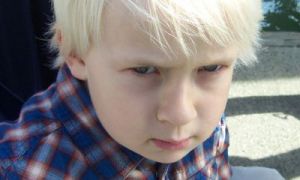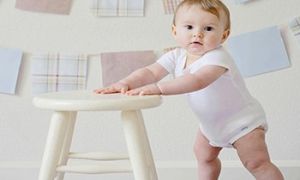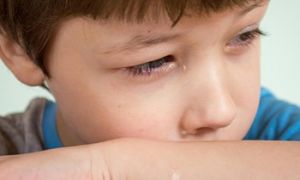

In early childhood education, empowered teams are the heartbeat of quality practice. When educators feel valued, heard, and supported, they don’t just comply—they co-create. Team empowerment isn’t a management strategy; it’s a relational commitment to emotional safety, shared purpose, and professional growth.
The concept of supervision zones is a practical strategy to enhance child safety and educator accountability where educators are assigned to actively supervise and engage with children.
A: As the end of the preschool year approaches, preschool educators begin preparing for graduation ceremonies—complete with miniature caps, choreographed performances, and proud photo ops. While these events can be joyful and affirming, they also invite deeper reflection. Is a formal graduation truly necessary in early childhood education? Or are there more developmentally appropriate, emotionally intelligent ways to honour children’s growth? This question opens space for reimagining what transition rituals could look like—and who they’re really for.
In a landmark move to enhance oversight and accountability across Australia’s early childhood education and care sector, Education Ministers have commissioned ACECQA to develop a New National Educator Register. This foundational digital system will provide regulators with clearer visibility of who is working in the sector and where—supporting safer, more transparent practices for children, families, and providers.
In child-related work, safety begins with trust and trust must be backed by verification. The NSW Office of the Children’s Guardian has issued a clear reminder: a Working With Children Check (WWCC) number alone is not enough. It could be expired, barred, or even fabricated. The only way to ensure a WWCC number is valid is through official online verification.
The following article provides information on why verification matters, how to do it, and what it means for your organisation’s safeguarding responsibilities.
Anxiety in young children often shows up in subtle ways ummy aches, restlessness, clinginess, or emotional outbursts. These feelings, sometimes described by children as having “the worries” or a “bubbly tummy,” can be overwhelming and difficult to articulate. As educators, we play a vital role in helping children recognise and regulate these emotions in safe, supportive ways.
The following article provides a simple, hands-on strategy that engages children’s attention, breathing, and body awareness—bringing calm and connection back into the moment.
Loose parts play is a powerful, open-ended approach that invites children to explore, create, and express themselves using everyday materials. It fosters autonomy, imagination, and problem-solving and can be tailored to your environment and the developmental needs of your children.
In the whirlwind of ratios, regulations, and relentless responsibilities, early childhood educators often forget the most vital resource in any service: themselves. That’s why Wellbeing Wednesday has become more than a calendar quirk—it’s a lifeline. Here’s a restorative reboot for your weekly wellbeing ritual, designed with emotional intelligence, trauma-informed practice, and authentic educator voice at its heart.
Toxic environments in early learning services can manifest as gossip, micromanagement, inconsistent policies, emotional invalidation, or even bullying. These psychosocial hazards are not just unpleasant—they’re legally and ethically significant under Work Health and Safety laws.
The transition from preschool to kindergarten isn’t just academic—it’s deeply social. As children move from parallel play to collaborative learning, they begin to form friendships, navigate conflict, and express their unique identities. These social and personal skills are the bedrock of emotional wellbeing and school readiness.
 Toddlers have a greater understanding of the world around them by this stage. Their cognitive development (also known as intellectual development and thinking skills) continues… Read More
Toddlers have a greater understanding of the world around them by this stage. Their cognitive development (also known as intellectual development and thinking skills) continues… Read More
 Infants begin to develop trust when parents begin to fulfil their needs. Such as changing an infant's nappy when needed, feeding on request and holding… Read More
Infants begin to develop trust when parents begin to fulfil their needs. Such as changing an infant's nappy when needed, feeding on request and holding… Read More
 Beginning at birth the construction of thought processes, such as memory, problem solving, exploration of objects etc, is an important part of an infant’s cognitive… Read More
Beginning at birth the construction of thought processes, such as memory, problem solving, exploration of objects etc, is an important part of an infant’s cognitive… Read More
 Toddlers want to do more on their own and do not like it when you begin to establish limits on their behaviour. Tantrums can become… Read More
Toddlers want to do more on their own and do not like it when you begin to establish limits on their behaviour. Tantrums can become… Read More
 Your preschooler is now able to focus their attention more accurately and is less influenced by distractions. The intensity of questions increase as your child… Read More
Your preschooler is now able to focus their attention more accurately and is less influenced by distractions. The intensity of questions increase as your child… Read More
 John Dewey is often seen as the proponent of learning by doing – rather than learning by passively receiving. He believed that each child was active,… Read More
John Dewey is often seen as the proponent of learning by doing – rather than learning by passively receiving. He believed that each child was active,… Read More
 Toddler advance and gains new skills in Gross Motor Development milestones achieved throughout earlier years. Co-ordination and challenges that could not be performed before such… Read More
Toddler advance and gains new skills in Gross Motor Development milestones achieved throughout earlier years. Co-ordination and challenges that could not be performed before such… Read More
 Erik Erikson developed a psychosocial theory to understand how we each develop our identities through eight stages of psychosocial development from infancy to adulthood. The… Read More
Erik Erikson developed a psychosocial theory to understand how we each develop our identities through eight stages of psychosocial development from infancy to adulthood. The… Read More
 At this point preschoolers begin to interact effectively with others. Play becomes more innovative and organized and “boyfriend” or “girlfriend” begins to emerge. Preschoolers have… Read More
At this point preschoolers begin to interact effectively with others. Play becomes more innovative and organized and “boyfriend” or “girlfriend” begins to emerge. Preschoolers have… Read More
 From now, babies begin to identify and respond to their own feelings, understanding other's feelings & needs and interact positively with others. A baby's social and… Read More
From now, babies begin to identify and respond to their own feelings, understanding other's feelings & needs and interact positively with others. A baby's social and… Read More

It is fairly common for your child to behave inappropriately as they begin to grow...
See more...
Here’s how each developmental milestone from birth to 12 months aligns with the EYLF outcomes.
See more...
Violence from a child in an early childhood setting can be confronting, destabilising, and emotionally...
See more...© 2009-2025 Aussie Childcare Network Pty Ltd. All Rights Reserved.
